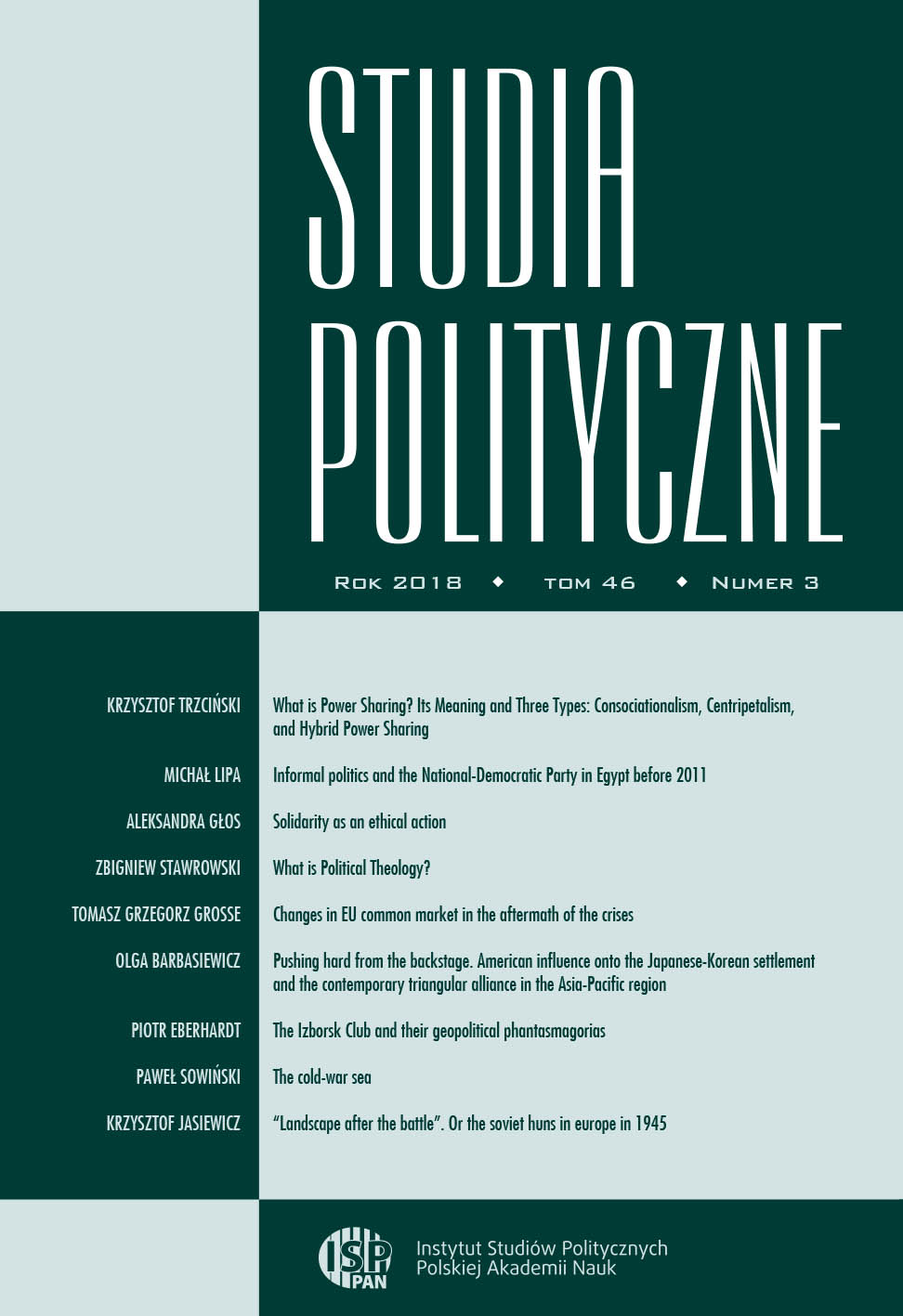Changes in EU common market in the aftermath of the crises
Changes in EU common market in the aftermath of the crises
Author(s): Tomasz Grzegorz GrosseSubject(s): Economic policy, EU-Approach / EU-Accession / EU-Development
Published by: Instytut Studiów Politycznych PAN
Keywords: single market; EU; four treaty freedoms; protectionism; crises
Summary/Abstract: The objective of this article is to present the most important single market changes in the aftermath of the crises that hit the EU after 2008. As a result of various economic and social problems, European societies have been reluctant to adopt liberal solutions. Furthermore, an increasing number of leading politicians, both in EU member states and within EU institutions, have ceased to support the single market’s previous direction of liberalization, which consisted in extending the four treaty freedoms (i.e., movement of persons, goods, services, and capital in this market) and removing protectionist barriers in each individual country. Crises have strengthened the tendency to introduce minimum EU regulatory standards in individual markets. These standards do not always increase the freedom of exchange and sometimes even reverse previous gains in the internal market or strengthen protectionism by national administrations. EU regulations also have a growing influence on the competitiveness of specific players in the single market, as well as on the distribution of costs and benefits between the actors involved in economic exchanges. Another feature of the change is the gradual closure of the EU to external rivals, and the introduction of arbitrary, individualized, and politicized management of their access to investment and economic activity in the single market.
Journal: Studia Polityczne
- Issue Year: 46/2018
- Issue No: 3
- Page Range: 85-112
- Page Count: 28
- Language: English

